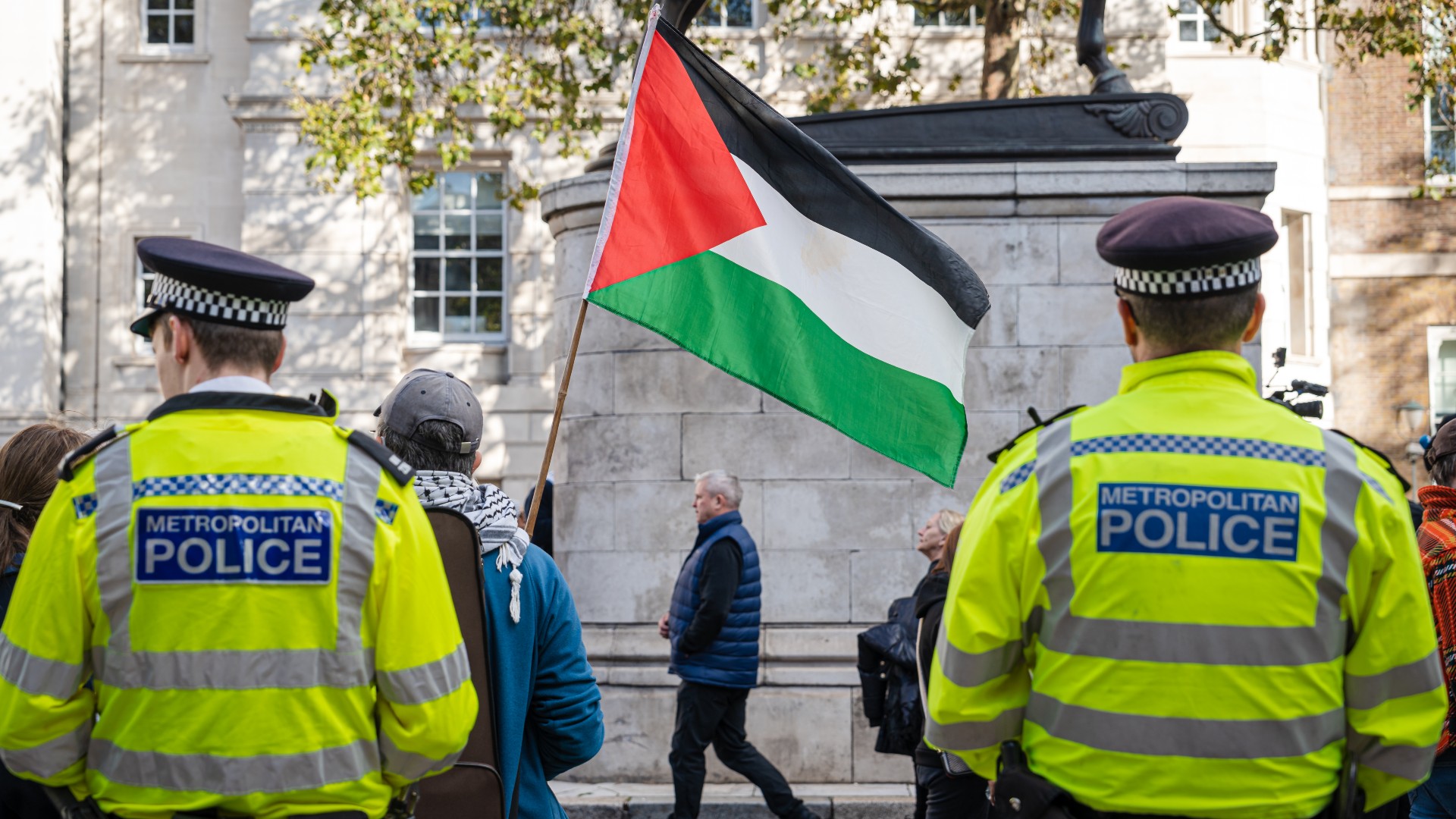Protest politics: when should police intervene?
Calls for law change after shouts of 'jihad' on UK streets found not to be terrorism or public order offences

A free daily email with the biggest news stories of the day – and the best features from TheWeek.com
You are now subscribed
Your newsletter sign-up was successful
Home Secretary Suella Braverman has called on the police to crack down on those inciting hatred or violence on UK streets after a video emerged of protesters at a pro-Palestinian rally in London calling for "jihad" against Israel.
In a statement, the Metropolitan Police defended its decision not to intervene, pointing out that "jihad" has "a number of meanings", and confirming that having assessed the video, specialist officers had not identified any criminal offences. Specialist Crown Prosecution Service lawyers also reached the same conclusion, it added.
Following a meeting with the home secretary on Monday, Met Commissioner Mark Rowley took a similar approach, stressing that "we are absolutely ruthless in tackling anybody who puts their foot over the legal line", but "we can't enforce taste or decency".
The Week
Escape your echo chamber. Get the facts behind the news, plus analysis from multiple perspectives.

Sign up for The Week's Free Newsletters
From our morning news briefing to a weekly Good News Newsletter, get the best of The Week delivered directly to your inbox.
From our morning news briefing to a weekly Good News Newsletter, get the best of The Week delivered directly to your inbox.
'A disgraceful cop‑out'
Braverman has previously written to police chiefs suggesting that waving Palestinian flags and using popular pro-Palestine slogans could be made illegal under the Public Order Act.
But much of today's focus has been on the word "jihad" itself, which "can mean struggle or effort, but has also been taken to refer to holy war", reported Sky News. Hizb ut-Tahrir, the Islamist fundamentalist group who held the protest where the video was recorded, has pledged to wipe out Israel and, noted the Daily Mail, "has been banned in almost all Arab countries, as well as Muslim-majority nations such as Turkey, Bangladesh and Indonesia".
"For activists calling for the destruction of Israel to hide behind spurious religious justification is disingenuous," said The Telegraph's editorial, "but for the police to stand by while the threat is made, on the basis that the word has several meanings, is outrageous."
"This is a disgraceful cop‑out, in more ways than one," the paper concluded.
A free daily email with the biggest news stories of the day – and the best features from TheWeek.com
"It's all very well for armchair critics to suggest how we extract one or two people from a crowd of 100,000 but it will cause harm to my colleagues and be criticised publicly," Ken Marsh, chair of the Met Police Federation representing rank-and-file officers, told the Evening Standard. "What they were shouting was not a criminal offence. Those having a go at us also have the power of citizen's arrest, so be my guest."
"Once again we're damned if we do and damned if we don't," he added.
'Extremists operating with impunity'
Britain’s former head of counter-terrorism, Neil Basu, has revealed to The Guardian that gaps in the law that allow words such as "jihad" to be shouted at rallies were known to the government but not acted upon. According to the Met, shouting "jihad" is not against current terrorism or public order laws.
In a 2021 report co-authored by Rowley, ministers were warned of a "gaping chasm" in the law, said The Independent, with the official watchdog the Commission for Countering Extremism concluding that gaps within current legislation have left it harder to tackle "hateful extremism" and allowed "extremists to operate with impunity".
Those calling for a change in the law have found an ally in Labour leader Keir Starmer. The former head of the Crown Prosecution Service has also called on the government to look at "gaps in the law" so stronger action can be taken in the future.
Yet despite a huge spike in hate crimes reported in recent weeks related to the Israel-Hamas conflict, No. 10 has indicated there are no plans to give police more powers to address chants deemed to be extremist.
"We do believe the police have extensive powers in this space and we will continue to discuss with them so there is clarity and agreement about how they can be deployed on the ground," it said.